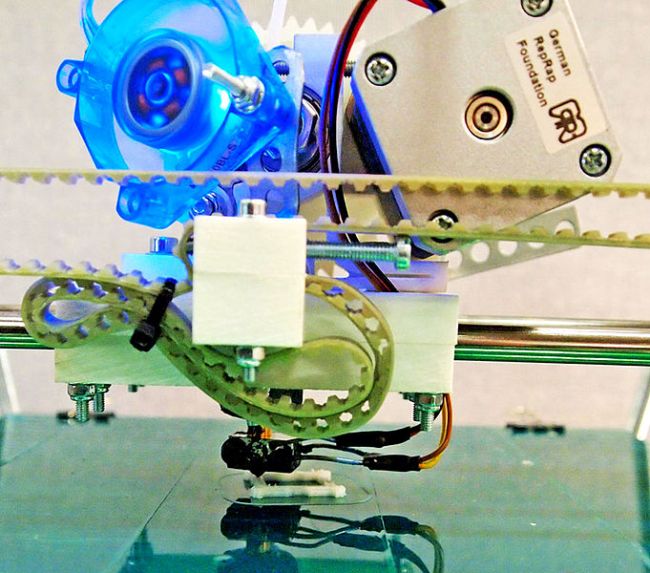Legal Questions and Issues on the Use of 3D Printing Technology
![By Slowking4 (Own work) [CC-BY-SA-3.0 (http://creativecommons.org/licenses/by-sa/3.0)], via Wikimedia Commons](https://techtheday.com/wp-content/uploads/2014/02/3d-printer.jpg)
By Slowking4 (Own work) [CC-BY-SA-3.0 (http://creativecommons.org/licenses/by-sa/3.0)], via Wikimedia Commons
3D printing is quickly becoming popular and accessible to more people these days. Their applications are reaching into the everyday lives of ordinary people. However, this technology is not just all about the good things. It is also faced with issues and valid concerns worth examining.
Arguably, 3D printing will revolutionize manufacturing or production. With the hardware and software aspects now maturing into more practical levels, 3D printing will soon become commonplace and will improve production for everyone — including those who have nefarious, unacceptable, or not-so-good intentions. In Japan last May, for example, a 27-year-old man was held over for 3D printed guns. Obviously, the creators of 3D printing technology did not intend to make their invention a part of fostering violence or terrorism.
The following questions and points may be raised against 3D printing technology:
Will There Be a Need to Regulate It?
Or will 3D printing be regulated? This may sound like an issue a tech blog should be paying attention to but it is actually something that can affect the progress of 3D printing technology. Just like the attempts to make into law the unsilencing of digital or mobile phone camera shutter sounds, governments may require 3D printer manufacturers to impose limitations on the kind of objects created or material used by 3D printers. This will likely retard or even prevent the advancement of 3D printing technology.
What about Copyright Issues?
Ars Technica somewhat likens 3D printing to Napster. Because of the range of production possibilities that come with 3D printing, copyrights on certain designs and patented works may be defeated. Potential buyers of the copyrighted or patented items may no longer want to buy them as they can produce their own versions with their own 3D printers. Nowadays, the difficulty of stealing ideas, concepts, and other forms of intellectual property is becoming easier. Product schematics are not difficult to obtain online and some may even invest in products that can scan 3D objects to generate plans for 3D printing. This early, the are already speculations that 3D printing may lead to the end of intellectual property rights.
Interestingly, lawyers are already anticipating the deluge of possible lawsuits arising from copyright infringements of those who use 3D printers especially in copying and commercializing counterfeit products. Attorneys are already making hints that they are open to providing their legal services for intellectual property rights violations involving 3D printing technology.
Will There Be Moves to Have 3D Printers Registered?
This has not been discussed yet but there’s a possibility that governments may decide to have 3D printers registered to help protect the interests of businesses. It all depends on the lobbying from the business sector. Registration is viewed as a way of preventing criminal activities involving 3D printers. It has been attempted in the case of prepaid mobile phones although such moves have been met with skepticism and even outright repulsion from some.
3D printers, just like mobile phones, have the potential to become useful tools for terrorists. That’s why it’s only expected that governments will likely attempt to regulate its availability and use. This regulation has the tendency to limit the technology and the features or capabilities available to individual end users.
![By Alange6373 (Own work) [CC-BY-SA-3.0 (http://creativecommons.org/licenses/by-sa/3.0)], via Wikimedia Commons](https://techtheday.com/wp-content/uploads/2014/05/3D_Scanner.jpg)
By Alange6373 (Own work) [CC-BY-SA-3.0 (http://creativecommons.org/licenses/by-sa/3.0)], via Wikimedia Commons
Can a 3D Printer User Be Sued for the Emissions?
3D printers are high power consumers that also emit unhealthy fumes and gases. This predicament raises the possibility of individual 3D printing enthusiasts to receive complaints from neighbors who may find the emissions unbearable. There was a study in 2013 that reported the possibility of 3D printers releasing potentially harmful nanosized particles. There haven’t been more recent studies that evaluated emissions from newer 3D printer models yet but the fact remains that neighbors can and will likely complain if they start getting worried by the emissions of 3D printers being used by a neighbor (especially in condos, flats, or apartments).
3D printers are doubtlessly a welcome technological advancement but the legal issues cannot be easily dismissed. The possibilities for damaging intellectual property infringement has to be addressed by regulators without disrupting the progress of 3D printing technology. Likewise, a solution is also needed in ensuring that 3D printers will not be used to produce things that facilitate terrorism and violence. Moreover, something has to be done about the possibly toxic emissions and other harmful by-products of 3D printing.
